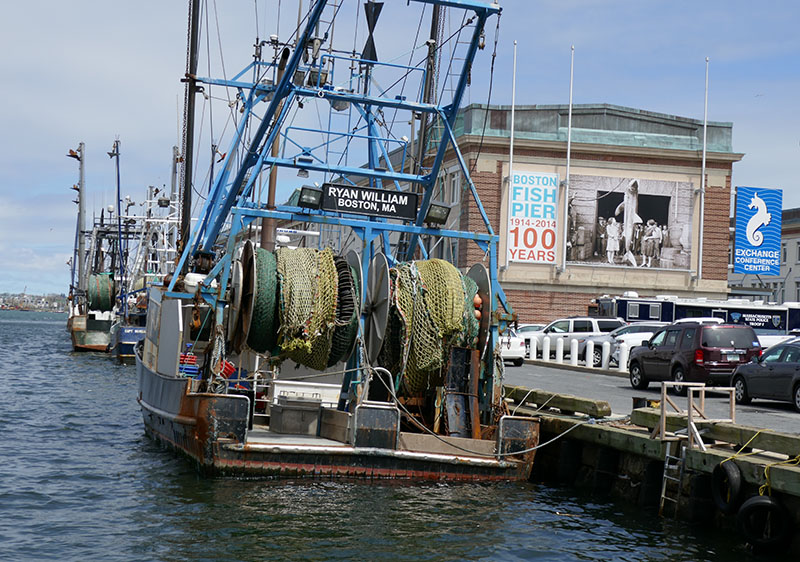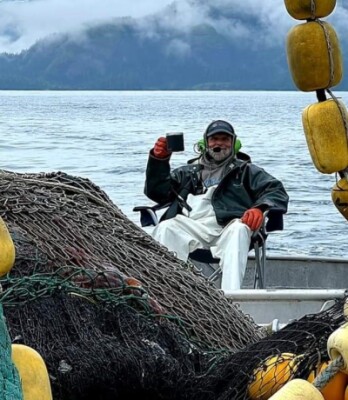The Boston Fish Pier could soon be placed on the National Register of Historic Places.
Over the past decade, development has transformed the South Boston waterfront, replacing old seaside warehouses and seafood spots with higher-end restaurants, office spaces and luxury apartments. Seafood dealers have been on edge over Boston’s real estate boom, but the Boston Fish Pier has persevered.
While less seafood is being unloaded from boats docked at the pier today, the wharf is still home to many processors and packers. The Massachusetts Port Authority, which owns the wharf, has made a point to keep seafood a major part of the space.
The pier celebrated its 100th anniversary in 2014.
South Boston politicians made the first request to seek designation in February 2016. This week the Massachusetts Historical Commission officially nominated the space for inclusion on the National Register of Historic Places, along with others. Those nominations will be reviewed by the National Park Service.
The designation would add a new level of review for any exterior changes at the pier and potential tax incentives for capital projects. According to Massachusetts Port Authority officials, tenants have leases through 2029.
Owners of John Mantia & Sons, a wholesale seafood processing business that’s operated on the waterfront since 1895, think the designation would be a great idea.
"It was something that was designed over 100 years ago that we're basically still using for the same purpose as was back then," owner Bill Mantia said in an interview with New England Cable News (http://www.necn.com/news/new-england/Boston-Fish-Pier-Could-Gain-National-Historic-Designation-417235143.html).







